 China comes in third at figure skating team event
China comes in third at figure skating team event
 China's teenager skater Yan shines at his Olympic debut
China's teenager skater Yan shines at his Olympic debut
 Taiwan-born actor stars on US TV series
Taiwan-born actor stars on US TV series
 Chinese Lunar New Year gift from abroad
Chinese Lunar New Year gift from abroad Chinese champions of Winter Olympic Games
Chinese champions of Winter Olympic Games  Zhang Yimou fined 7.48 mln for over-production
Zhang Yimou fined 7.48 mln for over-production
 Top 10 timeless female Chinese stars
Top 10 timeless female Chinese stars
 HK police disables WWII bomb in downtown
HK police disables WWII bomb in downtown
 64th Berlin International Film Festival kicks off
64th Berlin International Film Festival kicks off
The West's relentless disparagement of the Sochi Olympics has been all too familiar even prior to its opening on Friday, which was supposed to be a sporting event but suffered identical political finger-pointing as Beijing did six years ago.
The rhetoric was old-fashioned but not unexpected: alleged corruption, overrunning costs and human rights infringements. That is despite opinion polls, notably one by Gallup, produced headlines like "Russians See Gold in Sochi Olympic Games."
China also witnessed overwhelming domestic support for the 2008 Olympics, but no matter, as Western media bombarded Beijing with negative coverage at the time. The pattern was obvious: play down the consensus and whip up differences when there is ideological or political distance between the West and the Olympic host country.
Granted, the Olympics cannot but put a spotlight on its host, and Sochi is clearly not without headaches. So was Beijing, London, and probably in two years Rio de Janeiro.
However, to magnify troubles under a microscope and pin political tails with a less than glorious agenda is unbefitting for the grand Games. In fact, it appears opportunistic, albeit habitual given the West's track record.
"The Olympics are about building bridges to bring people together," International Olympic Committee President Thomas Bach said wisely at the opening ceremony. "They are not about erecting walls to keep people apart. Embrace human diversity and unity."
Such was the spirit Chinese President Xi Jinping carried to Sochi. It is customary for the Chinese people to offer congratulations upon their neighbors' joyous occasions, Xi said.
China firmly supports Russia in holding the Games, not only manifesting China's respect for sportsmanship and the Olympic ideals, but also providing a timely vote of confidence in a close neighbor and friend.
Such principles, promulgated in China's "new pattern of relationships between major countries," should apply to other international affairs beyond the Sochi Olympic Games.
In stark contrast, Euro-Atlantic leaders have shied away from appearances at the Olympic spectacle to avoid what would - or would not - be characterized as guilt by association. Apparently, politics rather than humanity was on their minds.
Many, including our friends at The Economist, have stoked the memory of the 1980 Moscow Olympics, taking pains to remind the world of the so-called international hostilities evidenced by the absence of a number of heads of state - but not their teams.
The comparison has been revealing. Thirty-four years later, it turns out, Cold-War mentality is alive and well in the West.
Despite the uproar, the Games have now officially kicked off with spectacular music and dance lighting up Sochi.
"Soon enough, attention will turn to the athletes and competition, as it should," The Wall Street Journal opined in a Friday editorial after disparaging the event at length. If only it could have turned sooner.
 Special Coverage: Sochi Winter Olympic Games
Special Coverage: Sochi Winter Olympic Games  A day of a female high-speed train chief attendant
A day of a female high-speed train chief attendant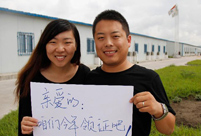 New Year greetings from Chinese nationals in Africa
New Year greetings from Chinese nationals in Africa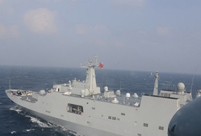 PLA navy conducts landing drills in South China Sea
PLA navy conducts landing drills in South China Sea 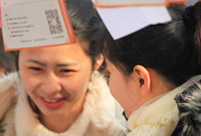 Blind date fair in Hangzhou
Blind date fair in Hangzhou 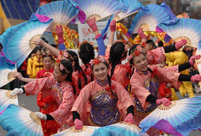 Highlights of Chinese New Year celebrations around the world
Highlights of Chinese New Year celebrations around the world 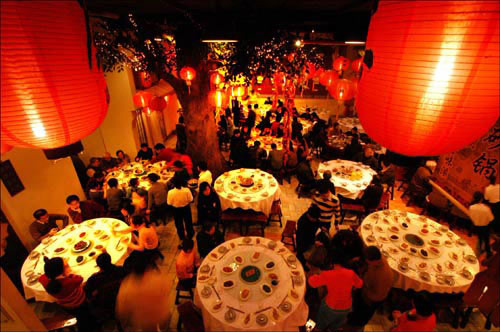 How do the Chinese spend their money during Spring Festival?
How do the Chinese spend their money during Spring Festival? 'Milk Tea' girl hosts Spring Festival gala of universities in U.S.
'Milk Tea' girl hosts Spring Festival gala of universities in U.S. 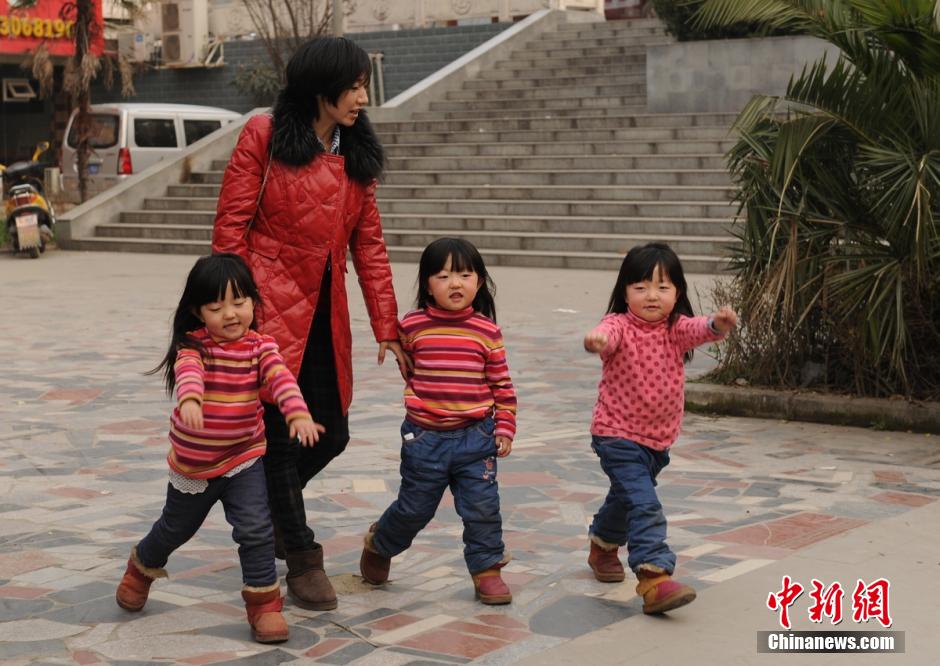 Brave mother fights cancer, enjoys Spring Festival with her triplets
Brave mother fights cancer, enjoys Spring Festival with her triplets President Xi attends opening ceremony of Sochi Winter Olympics
President Xi attends opening ceremony of Sochi Winter Olympics Highlights of opening ceremony of Sochi Winter Olympic Games
Highlights of opening ceremony of Sochi Winter Olympic Games Snowscape in Chinese New Year
Snowscape in Chinese New Year Interesting horse figures in life
Interesting horse figures in life  Top 20 most beautiful Chinese stars
Top 20 most beautiful Chinese stars  Top 10 Chinese films in 2013
Top 10 Chinese films in 2013Day|Week|Month